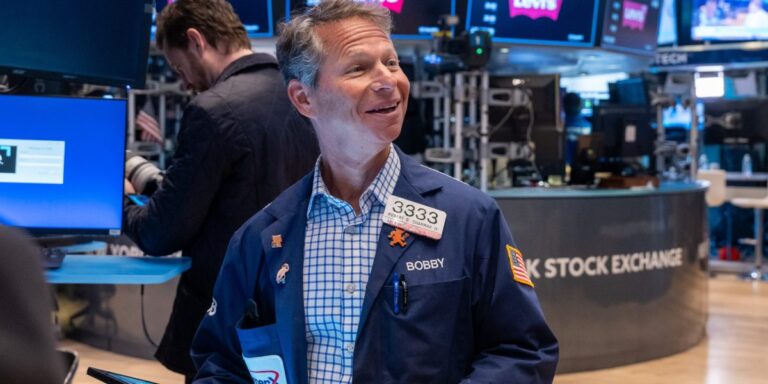
With the conflict between Israel and Iran in the Middle East escalating and inflation proving harder to control than expected domestically, the stock market’s meteoric rise has finally been halted – at least for now . After surging more than 27% between late last October and March 28, the S&P 500 index has fallen about 4% over the past two and a half weeks.
But it’s only a temporary correction in a bull market that’s expected to reward investors for nearly a decade, says James Demmert, founder and chief investment officer of Main Street Research, an investment management and investment management firm. market research with $2 billion in assets under management.
Demmert, who spent 35 years in the financial industry and is the author of three books on investing, most recently Lessons from Wall Streetexplained that he thinks stocks are “due for a pullback” after rising almost continuously for six months, but that doesn’t change his long-term thesis that AI will drive earnings growth in years to come.
“We are buyers of this stock market correction because even though the headlines are scary right now, we believe we have entered a new bull market led by the power of artificial intelligence,” he said. Fortune by email. “This new bull market could last another seven to nine years, as AI is expected to generate significant productivity gains for all companies, which will strengthen their profits. »
An AI-driven profit boom – with geopolitical risks
When it comes to the AI boom, the main question most professional investors have been clear from the start: Is the short-term hype overenthusiastic or is it justified? And there are still important voices on both sides of this debate.
Just this week, Goldman Sachs CEO David Solomon told analysts on an earnings conference call that AI is a transformational technology and that he sees serious opportunities for his company in financing AI. infrastructure needed for the AI boom. Companies around the world are repositioning their AI businesses to a “unprecedented” pace, according to Salomon. But Charles Schwab CEO Walter Bettinger II told analysts on his company’s earnings conference call Monday that he thinks it will take time for AI to mature. “I know it might not live up to the hype that some people are talking about,” he said.
Still, for Demmert, the rise of AI will help boost corporate profits in the years to come – and investors shouldn’t miss out on it due to near-term geopolitical issues. “During this exciting new economic cycle that will be driven by artificial intelligence, investors must avoid being impulsive and reactive to events such as the Middle East conflict and instead implement a patient, reactive and opportunistic strategy as these types of events unfold,” he said. argued.
Some statistics confirm cost reduction and the productivity-enhancing capabilities of AI that Demmert believes will increase business profits. AI could increase Global GDP of $7 trillion over the next decade, according to a Goldman Sachs study. And McKinsey discovered that generative AI systems could eventually automate tasks which currently occupy 70% of workers’ working time.
From American financial giants has Latin American telecoms, businesses around the world are already using AI to reduce labor costs and improve productivity, including in customer service and marketing. But big companies aren’t the only ones benefiting from the AI boom. Consider Batesville Tool & Die, a small manufacturing company in Batesville, Indiana, that makes precision metal stamping components. As the Associated Press reported Earlier this year, Batesville Tool & Die struggled to attract talent to its small town for years, leading to serious problems for the company. Then management decided to invest in a robot using AI to “see” the world and imitate human workers, which ended the talent shortage and increased the company’s productivity.
Demmert and other AI specialists believe that stories like this are happening all over the world and that these innovations will serve to increase corporate profits in the years to come. Still, the veteran investor warned that stocks could struggle in the near term, particularly if tensions in the Middle East and “other players in the region” get involved. “The extent of this stock market correction will depend largely on what happens in the Middle East and how things go from here,” he said, warning that “any escalation of tensions would likely cause stocks to fall further.” .”
Emily Bowersock Hill, CEO and founding partner of Bowersock Capital Partners, also said Fortune by email this week, stating that “geopolitical risks are unusually high and likely to remain so.” Meaning: Investors should be careful. But despite the threat of war in the Middle East – as well as higher inflation and fewer rate cuts – she, too, believes the bull market “remains intact.” And Bowersock Hill had some ideas for investors looking to take advantage of the AI boom as well.
“We like sectors that will benefit from AI but have not yet integrated the long-term productivity gains associated with it, including healthcare and manufacturing,” she said. “We also like AI-adjacent names in the tech sector that amplify or enable the use of AI.”


